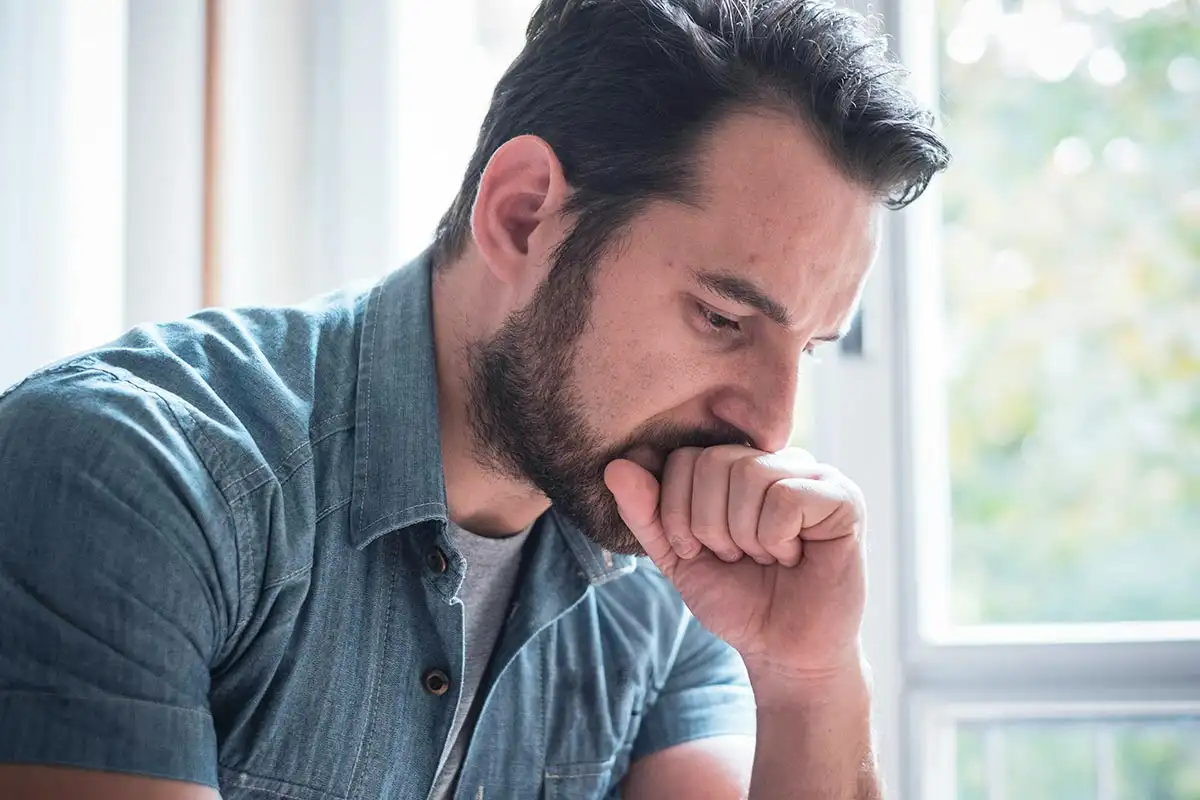
Drug Rehab Orange County Goes Virtual: What You Need to Know
Medically Reviewed by:

Dr. Marco M. Zahedi
Medical Director, Compassion Recovery Center

Dr. Michael Majeski
Licensed Psychologist (LP), Compassion Recovery Center
Table of Contents
Understanding the Shift to Virtual Drug Rehab in Orange County
The landscape of addiction treatment is constantly evolving, and one of the most significant recent developments, especially for residents of Orange County, California, is the increasing availability and acceptance of virtual drug rehab programs. If you or a loved one are grappling with substance use, understanding these remote options is more crucial than ever. The journey to recovery can be challenging, and knowing that effective, professional help is accessible from the comfort and privacy of your own home can be a beacon of hope. This shift towards telehealth addiction services isn’t just a fleeting trend; it’s a robust response to the need for more flexible, accessible, and personalized care. For many in Orange County, from busy professionals to parents juggling multiple responsibilities, virtual rehab offers a lifeline, breaking down traditional barriers to treatment. It means that high-quality Drug Rehab Programs and Alcohol Rehab Programs are no longer confined to physical buildings but can extend into your personal space, tailored to your life. Understanding these options empowers you to make informed decisions about your health and future. Compassion Recovery Center is at the forefront of providing these specialized remote services, ensuring that individuals in Orange County can get help now, without the added stress of travel or disrupting their entire lives. The importance of exploring virtual rehab lies in its potential to make recovery attainable for those who might otherwise feel it’s out of reach.
Navigating the world of addiction treatment can feel overwhelming, with various terms and program types to consider. However, the core goal remains the same: to provide support, tools, and therapies that foster lasting sobriety. Virtual rehab in Orange County, often referred to as telehealth addiction treatment, mirrors many aspects of traditional care but delivers them through secure online platforms. This means access to qualified therapists, group sessions, and even medical consultations without needing to commute to a facility. The beauty of this model is its inherent flexibility, catering to the unique circumstances of individuals. Whether you’re seeking a Virtual IOP Program or need support for a Dual Diagnosis Treatment, understanding that these services can be effectively delivered remotely is the first step. This guide aims to demystify virtual drug rehab, shedding light on how it works, its benefits, and what to consider when choosing a program, specifically for those in the Orange County area looking for compassionate and effective care. We encourage you to explore treatment options with an open mind, as the right path to recovery might be more accessible than you think.

The Rise of Virtual Drug Rehab
The concept of receiving healthcare remotely, or telehealth, isn’t entirely new, but its application in the realm of addiction treatment has seen a significant surge in recent years, particularly in tech-savvy regions like California. Historically, rehab often meant residential stays or frequent visits to a clinic. While these models are still vital for many, the rise of virtual drug rehab represents a paradigm shift, driven by technological advancements and a growing understanding of patient needs. Events in recent years have further accelerated the adoption of remote healthcare services, proving their efficacy and convenience across various medical fields, including Mental Health Treatment and substance abuse support. This evolution is particularly pertinent for “virtual rehab California” seekers, where lifestyle demands and geographical spread can make traditional options challenging.
The benefits of virtual rehab over traditional methods are numerous and compelling. One of the primary advantages is enhanced accessibility. Individuals in remote parts of Orange County, or those with mobility issues or caregiving responsibilities, can access top-tier treatment without the burden of travel. This increased access is a cornerstone of effective public health strategy in combating addiction. Furthermore, “telehealth addiction treatment” often provides a greater degree of privacy and anonymity, which can be a significant factor for individuals hesitant to seek help due to social stigma. Participating in therapy from the familiar environment of one’s home can also reduce anxiety and foster a greater sense of comfort and openness during sessions. You can learn more about the overall advantages by exploring resources like the top 10 benefits of virtual rehab. This model also offers unparalleled flexibility, allowing clients to integrate treatment into their daily lives, maintaining work, school, or family commitments more easily than might be possible with an in-person program. For many, the ability to schedule sessions around existing responsibilities is what makes starting the recovery journey feasible. If you’re considering this path, it’s a good idea to start your free assessment to understand how virtual care can fit your specific situation.
Key Services Offered in Virtual Rehab
Virtual drug rehab programs are designed to be comprehensive, offering a suite of services comparable to their in-person counterparts, all delivered through secure digital platforms. Understanding these core offerings can help you or your loved one feel more confident about choosing a remote treatment path. At Compassion Recovery Center, we ensure our virtual clients in Orange County receive robust, evidence-based care tailored to their individual needs.
A cornerstone of many virtual programs is the Intensive Outpatient Program (IOP). A “remote IOP” provides a structured yet flexible treatment experience. Clients typically participate in several hours of therapy per week, including group sessions, individual counseling, and educational workshops, all conducted online. This level of care is ideal for individuals who need more support than standard outpatient therapy but do not require 24/7 residential supervision. Our Virtual IOP Program is specifically designed to fit into your life, allowing you to continue with work or family responsibilities while receiving intensive treatment.
Cognitive Behavioral Therapy (CBT) is a highly effective psychotherapeutic approach widely used in addiction treatment, and it adapts exceptionally well to a virtual format. “Online CBT therapy” helps individuals identify and change negative thought patterns and behaviors that contribute to substance use. Through video sessions, therapists guide clients in developing coping strategies, problem-solving skills, and healthier ways of thinking. The principles of CBT are foundational in many evidence-based treatment plans, and you can explore more about such approaches in resources like Evidence based therapies for addiction recovery a beginner guide.
Medication-Assisted Treatment (MAT) is another critical service that can often be facilitated through telehealth, sometimes in a hybrid model. “MAT treatment online” involves the use of FDA-approved medications, in combination with counseling and behavioral therapies, to treat substance use disorders, particularly opioid and alcohol addiction. While initial assessments or prescriptions might occasionally require an in-person visit (depending on regulations and individual needs), ongoing management, therapy, and support can often be conducted remotely. This is especially relevant for services like Outpatient Detox, where medical supervision is key. Compassion Recovery Center can help you determine if MAT is appropriate and how it can be integrated into your virtual treatment plan.
Addiction profoundly impacts not only the individual but also their relationships. Recognizing this, many virtual rehab programs offer “Virtual couples counseling rehab.” These sessions provide a platform for partners to address how addiction has affected their relationship, improve communication, and work together towards recovery and healing. Having the support of a loved one can be instrumental in the recovery process, and virtual therapy makes it more convenient for couples to participate together, regardless of logistical challenges. Beyond these, virtual rehab often includes individual therapy, family therapy sessions, relapse prevention planning, and support for co-occurring mental health conditions through Dual Diagnosis Treatment. The goal is to provide a holistic and accessible path to recovery. If you’re unsure what services you need, it’s best to contact us for a confidential assessment.

How Virtual Rehab Works
Embarking on a virtual rehab journey might seem novel, but the process is designed to be user-friendly, secure, and effective. Understanding the mechanics of “telehealth addiction treatment” can alleviate concerns and help you visualize how recovery can unfold from the comfort of your home in Orange County. At its core, virtual rehab leverages technology to connect individuals seeking help with qualified addiction treatment professionals.
The primary technology used includes secure, HIPAA-compliant video conferencing platforms, similar to Zoom or specialized healthcare portals. These platforms allow for face-to-face interaction in real-time, facilitating individual therapy sessions, group meetings, and even family counseling. All you typically need is a stable internet connection and a device with a camera and microphone, such as a smartphone, tablet, or computer. For those concerned about setting up, many programs, including Compassion Recovery Center, offer guidance. You can find helpful tips on preparing your home environment in articles like What to pack and prepare for virtual rehab setting yourself up at home. Some programs may also use secure messaging apps for communication between sessions or online portals for accessing resources and assignments.
A typical session structure in a “remote IOP” or other virtual programs often mirrors that of in-person treatment. For instance, a day in a virtual IOP might involve a check-in, a group therapy session focused on a specific topic (like coping skills or relapse prevention), followed by educational components or individual assignments. You can get a clearer picture by reading about what a day in rehab looks like inside an IOP schedule. Individual therapy sessions are scheduled separately, providing dedicated time with a therapist to delve into personal challenges and progress. Interaction is key; group sessions encourage peer support and shared experiences, while individual therapy offers personalized guidance. Therapists are trained to foster engagement and build rapport even through a screen, ensuring a strong therapeutic alliance.
Privacy and security are paramount in any form of addiction treatment, and virtual rehab is no exception. Reputable providers use encrypted platforms that comply with healthcare privacy laws like HIPAA to protect patient information. Sessions are confidential, and discussions within group therapy are bound by the same rules of respect and privacy as in-person groups. It’s important to choose a program that is transparent about its security measures. At Compassion Recovery Center, we prioritize your confidentiality, ensuring that your journey to recovery is not only effective but also secure. If you have any questions about the logistics or privacy of our programs, we invite you to reach out today for more information.
Advantages of Virtual Rehab
The shift towards virtual drug rehab, especially for communities like Orange County, brings a host of advantages that make treatment more attainable and sustainable for many individuals. These benefits address common barriers to seeking help, opening doors to recovery that might have previously seemed closed. Understanding these advantages can empower you to consider “remote drug rehab Orange County” as a viable and effective option.
One of the most significant benefits is accessibility and convenience. Virtual rehab eliminates geographical limitations. Whether you live in a bustling part of Orange County or a more remote area, as long as you have an internet connection, you can access high-quality care. This is particularly beneficial for individuals with mobility issues, those lacking reliable transportation, or those living in underserved areas where specialized treatment centers might be scarce. The convenience of receiving treatment from home also means no commute time, making it easier to fit therapy into a busy schedule. For more insight on this, see Accessibility in recovery: how virtual treatment reaches underserved communities.
Building on convenience, flexibility in scheduling is another key advantage. Traditional rehab programs often require significant time commitments that can disrupt work, education, or family responsibilities. Virtual programs, especially Virtual IOP Programs, are often designed with this in mind, offering evening or weekend sessions. This flexibility allows professionals, students, and parents to receive the intensive care they need without having to put their lives completely on hold. Compassion Recovery Center understands the demands faced by Orange County residents and strives to offer programs that integrate seamlessly into their lives. Learn more about how virtual IOP fits into a busy schedule.
For many, maintaining anonymity and privacy is a crucial factor when considering addiction treatment. The stigma associated with substance use can be a powerful deterrent to seeking help. Virtual rehab offers a greater degree of discretion. You can attend sessions from the privacy of your own home, without needing to be seen entering a treatment facility. This can make it easier for individuals, including high-profile professionals or those in small communities, to take the brave step of starting their recovery journey. The comfort of a familiar environment can also encourage more open and honest participation in therapy.
Additionally, virtual rehab can sometimes be more cost-effective. While program fees vary, remote treatment eliminates ancillary costs associated with in-person care, such as transportation, childcare during sessions, or time taken off work for travel. Some virtual programs may also have lower overhead, which can translate to more affordable care. It’s always advisable to check insurance coverage, as many insurance providers now cover telehealth services, including addiction treatment. These combined advantages make “telehealth addiction treatment” an increasingly attractive option for those seeking effective and manageable paths to sobriety.
Challenges and Considerations
While virtual drug rehab offers numerous benefits, it’s important to acknowledge potential challenges and considerations to ensure it’s the right fit for everyone. A realistic understanding helps individuals make informed decisions and prepare adequately for a remote treatment experience. Addressing these points proactively can enhance the effectiveness of “virtual rehab California” programs.
One primary consideration is potential technological barriers. Not everyone has reliable high-speed internet access or a suitable device (computer, tablet, smartphone) for video sessions. Furthermore, some individuals may lack digital literacy or comfort with technology, which could create initial hurdles. Reputable providers like Compassion Recovery Center often offer technical support and guidance to help clients navigate these issues. However, for those in areas with persistently poor connectivity or without access to necessary equipment, this can be a significant challenge. It’s worth exploring options and discussing any tech concerns during an initial free assessment.
Another aspect to consider is ensuring effective communication and engagement. While therapists are skilled at building rapport remotely, some individuals may find it harder to connect deeply or stay focused in a virtual setting compared to in-person interactions. Distractions in the home environment can also interfere with engagement. It’s crucial for participants to create a private, quiet space for sessions. Strategies for combating Zoom fatigue and tips for staying accountable in a virtual program can be very helpful in mitigating these challenges.
It’s also vital to recognize that virtual rehab may not be suitable for addressing severe cases that may require in-person intervention. Individuals experiencing acute medical withdrawal symptoms needing intensive medical supervision for Outpatient Detox or inpatient detox, those with severe, unstable co-occurring mental health conditions, or those in an unsafe or unsupportive home environment might benefit more from, or initially require, in-person care like a Partial Hospitalization Program (PHP) or residential treatment. A thorough assessment by a treatment professional is essential to determine the most appropriate level of care. Virtual options can often serve as a step-down or a primary mode of treatment for many, but not all.
The home environment itself can be both a benefit and a challenge. While comfort is an advantage, a chaotic, unsupportive, or triggering home environment can undermine the recovery process. Individuals considering virtual rehab should assess whether they can establish a safe, private, and stable space conducive to healing and focus. Family involvement, when appropriate and positive, can be facilitated virtually, but negative dynamics at home need careful consideration.
Finally, while many thrive in virtual settings, some individuals may simply prefer the dynamic of in-person interaction for building a support network with peers. While virtual groups foster connection, the experience is different from face-to-face groups. It’s important to be honest about personal preferences and what environment feels most supportive. If you have concerns about whether virtual treatment is right for you or a loved one, contact us for a confidential assessment. Our team can help evaluate your specific situation and guide you towards the best path for recovery in Orange County.
Choosing the Right Virtual Rehab Program
Once you’ve decided that virtual rehab might be a good fit, the next crucial step is selecting the right program. Not all “remote drug rehab Orange County” providers are created equal, and making an informed choice can significantly impact the success of the recovery journey. There are several key factors to consider to ensure you or your loved one receives high-quality, effective care.
First and foremost, look into accreditation and licensing. Reputable virtual rehab programs should be accredited by recognized bodies such as The Joint Commission or CARF (Commission on Accreditation of Rehabilitation Facilities). Accreditation signifies that the program meets high standards of care, safety, and quality. Additionally, ensure that the therapists and medical staff are appropriately licensed and credentialed in California. This information should be readily available from the provider. Don’t hesitate to ask direct questions to ask before enrolling in an online IOP or rehab program.
Next, evaluate the staff qualifications and experience. Inquire about the background of the clinical team. Do they have specialized training in addiction and co-occurring mental health disorders (Dual Diagnosis Treatment)? What is their experience with telehealth delivery? Experienced professionals who are adept at virtual engagement can make a significant difference in the therapeutic experience. At Compassion Recovery Center, our team consists of highly qualified and compassionate professionals dedicated to remote care.
Consider the program offerings and therapeutic approaches. Does the program provide a comprehensive range of services that meet your specific needs? This includes the types of therapy offered (e.g., “Online CBT therapy,” DBT, motivational interviewing), the balance of individual versus group therapy, family involvement options, and whether they offer specialized tracks (e.g., for professionals, specific substances). Also, inquire about their approach to Drug Rehab Programs versus Alcohol Rehab Programs if one is more relevant to your situation. A program that tailors treatment plans to individual needs is generally preferable to a one-size-fits-all approach. For example, is “MAT treatment online” an option if that’s something you are considering?
It’s also important to understand how the program evaluates effectiveness and client progress. Do they have clear outcome measures? How do they track client progress and adjust treatment plans accordingly? While privacy is key, transparency about program structure and general success indicators is a good sign. Look for testimonials or ask if you can speak (anonymously, if needed) to program alumni, though this may not always be possible. The key factors for success often lie in the program’s commitment to evidence-based practices and individualized care.
Finally, ensure the program is a good personal fit. Consider the schedule, the technological platform’s ease of use, and the overall philosophy of the center. Does it resonate with you? Does it feel supportive and non-judgmental? Don’t forget to inquire about costs and Admissions Information, including insurance verification. Taking the time to research and ask pertinent questions will help you find a “virtual rehab California” program that can truly support your path to recovery. Compassion Recovery Center is committed to providing clear information to help you make this vital decision.
Compassion Recovery Center’s Approach to Virtual Rehab
At Compassion Recovery Center, we are dedicated to providing exceptional “remote drug rehab Orange County” services, understanding the unique needs and challenges faced by individuals and families in our community. Our approach is built on a foundation of empathy, evidence-based practices, and the innovative use of technology to deliver comprehensive care directly to you, wherever you are in Orange County.
We specialize in remote drug and alcohol rehabilitation, offering a range of services tailored to foster lasting recovery. A cornerstone of our offerings is our Virtual IOP Program. This intensive outpatient program provides a structured yet flexible treatment schedule, allowing clients to engage in robust therapy while maintaining their daily responsibilities. Our services extend to comprehensive Drug Rehab Programs and specialized Alcohol Rehab Programs, ensuring targeted support for various forms of substance dependence.
A key aspect of our care is our expertise in Dual Diagnosis Treatment. We recognize that substance use disorders often co-occur with mental health conditions such as depression, anxiety, or trauma. Our integrated approach addresses both the addiction and any underlying Mental Health Treatment needs simultaneously, which is crucial for sustainable recovery. Our therapists are trained in various modalities, including “Online CBT therapy,” to help clients develop healthier coping mechanisms and thought patterns.
What sets Compassion Recovery Center’s virtual programs apart?
- Personalized Care: We believe that recovery is not a one-size-fits-all journey. Upon intake, each client undergoes a comprehensive assessment, which informs a personalized treatment plan. This plan is regularly reviewed and adjusted to ensure it continues to meet the client’s evolving needs.
- Experienced and Empathetic Professionals: Our team consists of licensed therapists, counselors, and medical staff (when “MAT treatment online” or Outpatient Detox support is involved) who are not only experts in addiction treatment but also skilled in creating supportive and engaging virtual therapeutic environments.
- Focus on the Orange County Community: While virtual, our services are deeply rooted in understanding the specific stressors and resources within Orange County. This local focus allows us to provide relevant support and connect clients with community resources if needed.
- Commitment to Accessibility and Privacy: We utilize secure, HIPAA-compliant technology to ensure your privacy is protected. Our flexible scheduling options aim to make treatment accessible for busy professionals, parents, and anyone facing barriers to traditional care.
- Holistic Approach: Beyond just addressing substance use, we focus on overall well-being, incorporating strategies for stress management, relationship building (including “Virtual couples counseling rehab” principles), and relapse prevention. We even address modern challenges like Social Media Addiction Treatment when relevant, recognizing its potential interplay with substance use and mental health.
Choosing “Compassion Recovery Center” means choosing a partner committed to your recovery. We understand the courage it takes to seek help, and we strive to make the process as smooth and supportive as possible. We invite you to reach out today to learn more about our personalized approach and how our virtual programs can help you or your loved one reclaim a life free from addiction. You can also easily Verify Insurance online to understand your coverage options.
Success Stories and Outcomes in Virtual Rehab
One of the most pressing questions for anyone considering treatment is: does it work? When it comes to “telehealth addiction treatment,” the evidence is increasingly affirmative. While individual results always vary, virtual rehab has demonstrated its capacity to produce positive outcomes comparable to traditional in-person services for many individuals. Understanding this can provide reassurance and motivation to those exploring remote options for “drug rehab Orange County.”
General statistics and research studies are progressively highlighting the effectiveness of telehealth for substance use disorders and mental health. Numerous analyses have found that therapy delivered via video conferencing can be as effective as face-to-face sessions for conditions like depression, anxiety, and PTSD, which often co-occur with addiction. Specifically for addiction, studies suggest that virtual IOPs and outpatient counseling can lead to significant reductions in substance use, improvements in mental health symptoms, and higher rates of treatment retention, partly due to the convenience factor. For a deeper dive, you might find our article on how effective telehealth is for substance abuse treatment informative. The key components of effective treatment – such as skilled therapists, evidence-based practices like CBT, group support, and consistent engagement – are all deliverable through a virtual medium.
While large-scale, specific statistics for “virtual rehab California” are continuously evolving, anecdotal evidence and program-level data from centers like Compassion Recovery Center showcase numerous positive outcomes. We’ve seen individuals who previously struggled to access or commit to treatment thrive in a virtual setting. Imagine a busy professional in Irvine, balancing a demanding career and family life, who was hesitant about traditional rehab due to the time commitment and stigma. Through a “remote IOP,” they were able to attend evening sessions, receive “Online CBT therapy,” and connect with peers, all while maintaining their job and family presence. This led to sustained sobriety, improved work performance, and healthier family dynamics. Consider a young adult in a more remote part of Orange County, struggling with both substance use and social anxiety. The thought of attending in-person groups was overwhelming. Virtual treatment provided a less intimidating entry point. They were able to engage in individual therapy from a safe space, gradually build confidence in virtual group settings, and access Dual Diagnosis Treatment for their co-occurring conditions, ultimately finding a path to recovery they didn’t think possible. Or picture a couple whose relationship was strained by addiction. “Virtual couples counseling rehab” offered them a convenient way to attend sessions together, learn better communication skills, and support each other through the recovery process, rebuilding trust and intimacy from their own home.
These are representations of the kinds of transformations we facilitate. Success in recovery is a personal journey, deeply influenced by individual commitment, the support system, and the quality of treatment. Virtual rehab, by removing barriers and offering flexibility, empowers more people to embark on and sustain this journey. At Compassion Recovery Center, we focus on celebrating every milestone, as highlighted in celebrating milestones: why acknowledging your progress matters. If you’re ready to build your own success story, we encourage you to start your recovery journey today. We believe that positive outcomes are achievable and are here to support you every step of the way.
The Future of Virtual Drug Rehab
The landscape of addiction treatment is dynamic, and virtual drug rehab is at the cutting edge of this evolution. As technology continues to advance and our understanding of remote care deepens, the future of “telehealth addiction treatment” looks promising, with innovations poised to make services even more accessible, engaging, and effective for individuals in Orange County and beyond.
One of the key emerging trends is the integration of more sophisticated digital tools. This includes the potential use of Artificial Intelligence (AI) to provide supplementary support, such as AI-powered chatbots for crisis intervention or tools that help therapists track patient progress and identify potential relapse triggers more efficiently. While AI will not replace human therapists, it can augment their capabilities. Virtual Reality (VR) is another technology showing promise, particularly for exposure therapy (e.g., navigating triggering situations in a safe, controlled virtual environment) or for creating more immersive group therapy experiences. Wearable technology, like smartwatches or biosensors, could also play a role in monitoring physiological signs related to stress, cravings, or sleep patterns, providing valuable data for both clients and clinicians to inform treatment adjustments. This is especially relevant given the link between addiction and issues like sleep, as discussed in sleep issues in recovery.
We can anticipate enhancements in telehealth platforms themselves. This means more intuitive interfaces, better integration with electronic health records, improved tools for interactive group activities, and even more robust security features. The goal will be to make the virtual experience as seamless and engaging as possible, minimizing the “digital divide” and ensuring ease of use for everyone, regardless of their tech-savviness. As these platforms improve, the quality of “remote IOP” and other virtual services will continue to rise.
Predictions for the evolution of virtual rehab services include a greater prevalence of hybrid models. This could involve a combination of remote therapy sessions with occasional in-person check-ins or group activities, offering the best of both worlds. We may also see greater specialization in virtual offerings, with programs catering to very specific demographics or co-occurring conditions. For example, highly specialized Mental Health Treatment components within a virtual rehab setting could become more common. The focus will remain on personalization, adapting treatment to the unique needs of each individual seeking help for “drug rehab Orange County.”
The commitment to continuous improvement and accessibility will undoubtedly drive the future. This includes ongoing research into the effectiveness of different virtual modalities, efforts to expand insurance coverage for telehealth services (building on laws like California’s parity laws), and initiatives to bridge the digital divide for underserved populations. As “Compassion Recovery Center” looks to the future, we are excited by the potential to reach more individuals in need and to continually refine our “remote drug rehab Orange County” services. We encourage you to stay informed about innovative treatment options as they develop, knowing that help is becoming more adaptable and accessible than ever. The journey to recovery is one of hope, and the future of virtual rehab is bright, offering new pathways to healing.
Embracing Virtual Options for Your Recovery Journey
The journey out of addiction is a profound and personal one, and the path you choose for treatment should align with your life, your needs, and your comfort. As we’ve explored, virtual drug rehab has emerged as a powerful, effective, and highly accessible option, particularly for residents of Orange County. The shift towards “telehealth addiction treatment” is not just about convenience; it’s about breaking down long-standing barriers and bringing compassionate, professional care directly to those who need it most, in a way that respects their privacy and lifestyle.
We’ve seen the numerous benefits: the unparalleled accessibility that transcends geographical limits and physical constraints; the flexibility that allows treatment to integrate with work, family, and daily responsibilities, making programs like a “remote IOP” feasible for many; the enhanced privacy and anonymity that can ease the initial step of seeking help; and the potential for cost-effectiveness. Services like “Online CBT therapy,” “MAT treatment online” (with appropriate oversight), and even “Virtual couples counseling rehab” are all effectively delivered in a remote format, providing comprehensive support for various aspects of recovery. At Compassion Recovery Center, we are proud to offer these specialized “remote drug rehab Orange County” services, tailored to meet the unique challenges and strengths of each individual.
While there are considerations, such as ensuring adequate technology and a supportive home environment, these are often manageable with the right support and planning. The effectiveness of virtual care is increasingly supported by research and countless personal success stories. The ability to connect with skilled therapists and a supportive peer group from the security of your own home can be transformative. It means that a demanding job, childcare duties, or distance from a treatment facility no longer have to be insurmountable obstacles to getting help for substance use or co-occurring Mental Health Treatment needs.
The importance of exploring virtual rehab options cannot be overstated. If you or a loved one in Orange County is struggling, know that recovery is possible, and innovative treatment modalities are making it more attainable than ever. Don’t let perceived barriers hold you back from taking that crucial first step. The courage to seek help is the beginning of healing, and programs like those offered by “Compassion Recovery Center” are designed to meet you where you are, offering a supportive, confidential, and effective path forward. We encourage you to learn more about our Virtual IOP Program and other services. You can easily check insurance coverage or take the first step by requesting a Free Assessment. Your journey to a healthier, substance-free life can begin today, supported by the convenience and compassion of virtual care. Don’t let distance or a busy schedule be a barrier any longer. Get help now and discover how virtual drug rehab can empower your recovery.
How does virtual rehab work?
What are the benefits of virtual drug rehab?
Can virtual rehab be as effective as in-person treatment?
What technology is required for virtual rehab sessions?
How do I choose the right virtual rehab program?
Struggling to balance life while needing support? Get expert virtual care and start your recovery journey, anytime, anywhere.
We’re learning more each day.
Researchers and doctors are making exciting progress in understanding mental health and addiction—bringing hope to millions.
Your genes don’t define you.
Genetics can play a part, but they don’t decide your future. Mental health is shaped by many factors, and healing is always possible.
There's no one-size-fits-all.
The right treatment often includes a mix of therapy, medication, and compassionate care—tailored just for you.


















